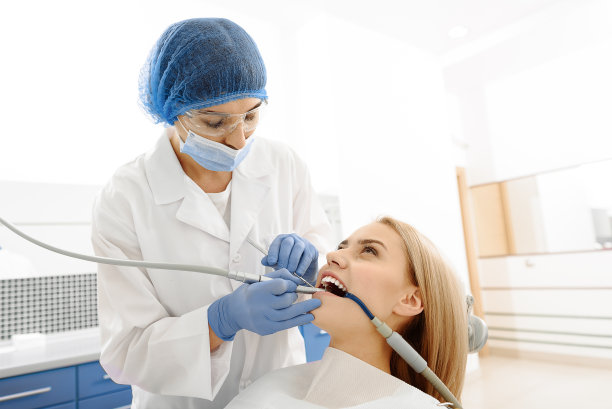Summary: This article delves into essential precautions that individuals should take before and after a dental filling procedure to ensure optimal oral health. It encompasses thorough preparation strategies, procedures during the appointment, post-filling care, and the importance of follow-up visits. By understanding these aspects, patients can enhance their recovery process and maintain their overall dental hygiene. Following these simple yet significant guidelines can result in better dental health outcomes, minimizing any discomfort or potential complications associated with the filling process.
1. Preparing Your Mouth for Filling

Before undergoing a dental filling procedure, it is crucial to prepare your mouth to ensure a smooth experience. Start by committing to good oral hygiene. Brush and floss your teeth thoroughly the day before your appointment, emphasizing the area around the cavity. This removes any plaque or debris that may harbor bacteria, ultimately reducing the risk of infection.
Another important aspect of preparation is to inform your dentist about any medications you are currently taking or existing health conditions. Certain medications may influence your healing process, while some health issues can increase the risk of complications during the procedure. Full transparency helps your dentist provide the best care possible.
Lastly, consider discussing your anxiety or fear regarding dental procedures with your dentist. They may offer options such as sedation or relaxation techniques to help you feel more at ease. A calm state of mind leads to a more successful filling procedure.
2. Understanding the Dental Filling Procedure
After ensuring you’re well-prepared, its helpful to understand what to expect during the dental filling procedure itself. The dentist will use a local anesthetic to numb the area surrounding the cavity. Being informed about the use of anesthesia allows you to prepare mentally for the sensations that may follow.
During the procedure, a drill or laser will be used to remove the decaying area of the tooth. This process may create some vibrations or sounds, which can be uncomfortable, but it generally isnt painful due to the anesthesia. Knowing this will help you build realistic expectations, reducing stress during the appointment.
Finally, be sure to communicate any discomfort you may experience during the procedure. Early warning can allow the dentist to adjust their methods or provide additional anesthesia as necessary. Clear communication enhances the overall experience, contributing to a positive dental visit.
3. Caring for Your Fillings Post-Procedure
After receiving your dental filling, proper aftercare is essential to ensure its longevity and your overall oral health. Begin by avoiding food and beverages for at least an hour after the procedure, particularly hot or hard items. This precaution allows the anesthesia to wear off, reducing the risk of inadvertently biting your tongue or cheek.
In the days following the filling, maintain a gentle oral care routine. Continue to brush your teeth but do so with care around the filled area. Use a soft-bristled toothbrush to avoid irritating the sensitive area, and avoid flossing the new filling for a few days until your dentist confirms its safe.
Moreover, keep an eye out for any unusual discomfort or sensitivity in the filled tooth beyond the initial healing period. If you notice ongoing pain or discomfort, reach out to your dentist promptly. Early intervention can prevent more serious complications and ensure the filling remains intact and functional.
4. Importance of Follow-Up Dental Visits
One often overlooked aspect of maintaining optimal oral health after a dental filling is the significance of follow-up visits. Schedule an appointment with your dentist a few weeks after your filling to ensure everything is settling correctly. These visits provide an opportunity for professional evaluation, allowing your dentist to spot any potential problems early.
In addition, attending regular check-ups can help maintain your overall oral hygiene. Professional cleanings not only remove plaque and tartar that regular brushing might miss but also keep your mouth healthy and free from future cavities that could jeopardize your new filling.
Finally, staying in touch with your dentist enhances your knowledge about your dental health. They can offer personalized advice related to maintaining your fillings and help you adopt practices to prevent future dental issues. Consistent follow-ups establish a proactive approach to oral health.
Summary:
In conclusion, taking essential precautions before and after a dental filling procedure is vital for ensuring optimal oral health. By being proactive in preparation, understanding the procedure, adhering to proper aftercare, and committing to follow-up visits, you can significantly enhance your dental well-being. Implementing these measures fosters not only the durability of your fillings but also contributes to your overall dental health.
This article is compiled by Vickong Dental and the content is for reference only.
Vickong Dental
Vickong Dental is a large medical group established in Hong Kong in 2008 by professors from well-known medical universities in Guangdong and Hong Kong, as well as medical doctors from key national '985' universities (including Master's supervisors and senior professors). The chain of branches brings together expert dentists with PhDs and Master's degrees from Hong Kong and Mainland China, committed to providing high-quality dental treatment.
"Vickong Dental Practices the University Motto of 'Healing and Serving Society,' with a Stable Operation for Sixteen Years. It Has Been honored with Hong Kong Enterprise Leaders's Choice,' and is a Global Trusted Implant Center for the Nobel Implant System. Recommended by Hong Kong Metro Broadcast and Guangdong Television, it Serves Customers from Over Thirty Countries and Regions, Gaining the Trust and Favor of Citizens from the Guangdong-Hong Kong-Macau Greater Bay Area and Surrounding Cities.

Thousands of customers' unanimous praise
The most recognized and highly recommended dental service by customers in the Guangdong-Hong Kong-Macau Greater Bay Area
We Ensure You Receive Detailed Care and Attention Here
Hong Kong standards, Shenzhen prices, Your Trusted English-speaking dentists

Vickong Dental Medical-Grade Instrument Disinfection Process
Vickong Dental Medical-Grade Instrument Disinfection Process

Vickong Dental Chain: A Warm and Comfortable Environment for Treatment






Appointment Hours

Q&A
Why choose Vickong Dental?
Vickong Dental practices the university motto 「Medicine to Benefit Society」, with each branch bringing together highly qualified dentists with doctoral and master’s degrees from Hong Kong and the Mainland, and has maintained seventeen years of steady operation。Recipient of 「2024 Hong Kong Enterprise Leaders Brand」, 「2025 Hong Kong Enterprise Leaders Brand」, a Nobel Biocare Global Trusted Implant Center, and a brand recommended by Metro Radio Hong Kong and Guangdong TV。
To date, we have served customers from more than thirty countries and regions,earning exceptionally high word-of-mouth recognition and trusted recommendations from residents across the Guangdong-Hong Kong-Macao Greater Bay Area and surrounding cities
We have eight major branches in Zhuhai、Shenzhen,and a consultation and service assurance center in Hong Kong,so you can book a free consultation at any time for any questions,which is very reassuring.
If I do not accept the quotation after the CT scan, will I be charged??
No! As long as the actual treatment has not started, you will not be charged any fees.
Will there be any additional charges during the treatment process?
No, there won’t be any additional charges. Before treatment begins, we will clearly explain the treatment plan and its corresponding fees. Only after the patient agrees and signs the consent form will we proceed with the dental service.
Can I pay in Hong Kong dollars?
Yes. Vickong Dental accepts payment in Hong Kong dollars. The amount will be converted based on the exchange rate of the day, and the applicable rate will be clearly communicated to you in advance.
Can I reschedule my appointment at any time?
Yes. Please contact us via **WeChat** or **WhatsApp** as early as possible, providing your original appointment time and details, along with your preferred new date and time slot for rescheduling.













